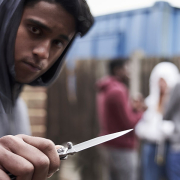BME Mentors: Shamima Begum: The Bethnal Green Schoolgirl Who Joined ISIS (2015)

In February 2015, Shamima Begum became the face of teenage radicalisation in Britain when, at just 15 years old, she ran away to join the Islamic State. Begum was one of three schoolgirls from the same class at Bethnal Green Academy in London who, in a meticulously planned escapade, caught a flight from Gatwick to Turkey and then slipped across the border into Syria.
Coming from a Bangladeshi-British family, Shamima had been, by her parents’ account, a relatively normal teenager. She loved clothes, pop music, and was expected to study for her GCSE exams. But online she had absorbed ISIS’s propaganda, and the pull of the so-called caliphate proved stronger than anyone realized.
In Raqqa, Syria, Shamima was promptly married off (at 15) to a Dutch-born ISIS fighter nearly twice her age. Over the next couple of years, she lived in the ISIS “capital,” survived Allied bombing raids, and gave birth to three children in quick succession all of whom died in infancy due to the harsh conditions and lack of medical care.
By early 2019, as ISIS’s territory collapsed, the 19-year-old Shamima Begum ended up in al-Hol refugee camp under Kurdish custody. There, a British journalist Anthony Loyd of The Times found her, nine months pregnant again and seemingly unrepentant.
Begum’s interviews ignited a firestorm in the UK. She spoke bluntly, saying that life in the caliphate had been mostly “normal” and that she “didn’t regret” going to Syria. She admitted to losing two infants to malnutrition and disease and said she had just fled the last ISIS enclave, but shocking the public, she expressed support for ISIS atrocities.
For example, she told the reporter that the sight of a severed head discarded in a bin “didn’t faze me at all” because she’d become desensitized. She also suggested that the Manchester Arena bombing which killed children was justified revenge for bombing in Syria comments that horrified readers back home.
Begum did ask to come home, saying: “I’ll do anything required just to be able to come home and live quietly with my child.” She was still pregnant with her next baby and feared for its life. However, her lack of remorse and seemingly cold demeanour in those initial interviews swung British public opinion firmly against her.
The UK government’s response was swift and severe. Then-Home Secretary Sajid Javid warned that any British citizen who joined ISIS should expect to be prevented from returning. “My message is clear,” Javid said. “If you have supported terrorist organisations abroad I will not hesitate to prevent your return.” Within days, Javid revoked Shamima Begum’s British citizenship, using special powers to strip nationality on security grounds.
This move was controversial Begum had been born and raised in the UK, and making her stateless would normally be unlawful. The government argued she was technically a dual Bangladeshi national by descent through her parents, though Bangladesh emphatically said it would not accept her.
Thus began a long legal battle over Begum’s status. In the meantime, her newborn son born in the camp in March 2019 tragically died of pneumonia at just three weeks old, adding fuel to the debate. Begum, now childless and stranded in a Kurdish detention camp, gave further interviews in which she appeared to soften her stance, saying she regretted her actions and asking for sympathy. She claimed to have been “brainwashed” as a minor and offered to help deradicalize others if allowed home.
As of 2025, Shamima Begum remains in legal limbo. She has pursued appeals to reinstate her UK citizenship, asserting that she was a trafficked minor exploited by ISIS recruiters.
However, British courts have thus far upheld the government’s decision, citing security concerns. A Special Immigration Appeals Commission in 2023 acknowledged that Begum was likely “recruited, transported, transferred, harboured and received in Syria for the purpose of sexual exploitation” in other words, a victim of trafficking, but still ruled that the Home Secretary’s assessment of her threat to national security must take precedence.
Begum’s lawyers continue to fight, and her story has spurred intense public discourse: Is she a victim of child grooming by a terror group, or a villain responsible for her own choices? Documentaries, podcasts, and books have explored her complex case. Meanwhile, British officials stand firm that allowing her back would pose too great a risk.
The Shamima Begum saga is a cautionary tale of youthful radicalisation, and it forced the UK to grapple with unprecedented questions of law and morality. As one commentator put it, “She was a schoolgirl when she left and Britain’s most reviled ISIS member when she wanted to return.” The outcome of her case may set a precedent for how countries handle other citizens who joined jihadist groups and now languish in camps, unwanted by any nation.



